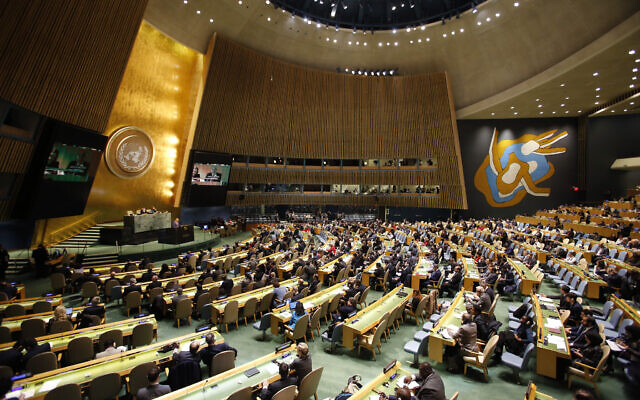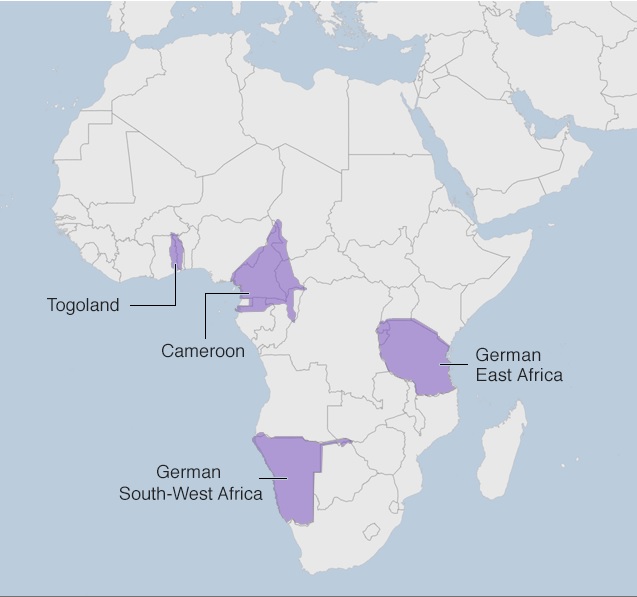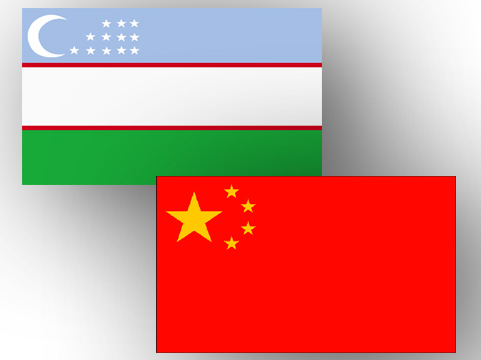
Constitutional Dilemmas in International Context
The Armenian constitution stands at a crossroads, caught between historical aspirations and international legal standards. This document explores how specific provisions within Armenia's constitution may be at odds with the norms and principles upheld by the myriad of international organizations of which it is a member. The analysis delves into the complexities of Armenia's constitutional references to its Declaration of Independence and the consequential implications for regional and global peace. These constitutional elements not only pose questions about Armenia's commitment to international law but also bring to light the potential conflicts with global legal frameworks such as the UN Charter and the OSCE Helsinki Final Act. As Armenia navigates its path on the international stage, the friction between its nationalistic aspirations and its international obligations could result in significant diplomatic, legal, and geopolitical challenges.
Incompatibility with International Legal Norms
The Armenian constitution contains articles that potentially clash with international law. Specific provisions may contradict the principles upheld by international organizations to which Armenia belongs. This misalignment raises questions about Armenia's commitment to global legal standards.
Armenia's membership in numerous international organizations, including the United Nations (UN), Council of Europe, Organization for Security and Co-operation in Europe (OSCE), Collective Security Treaty Organization (CSTO), Commonwealth of Independent States (CIS), Eurasian Economic Union (EAEU), World Trade Organization (WTO), International Monetary Fund (IMF), World Bank, and Asian Development Bank (ADB), raises concerns about the compatibility of its constitution with international norms.
The constitution’s references to the Declaration of Independence and the implied territorial claims against Azerbaijan and Türkiye contradict with the goals and principles of these organizations. For instance, the UN Charter prohibits (Article 2(4)) the threat or use of force against the territorial integrity of any state, a principle potentially violated by Armenia’s constitutional references [1].
Similarly, the OSCE Helsinki Final Act emphasizes the inviolability of frontiers, a principle contravened by the constitutional implications for territorial claims [2]. The Council of Europe, which promotes democracy, human rights, and the rule of law, might also see these territorial claims as inconsistent with its goals. Even in organizations like the CSTO and CIS, which are more aligned with Russian interests and promote regional stability and cooperation, Armenia's constitutional claims could destabilize regional relations.
While these constitutional elements may not lead to immediate suspension or punishment from these organizations, they could result in diplomatic pressure to amend the constitution, warnings or statements of concern, potential obstacles in peace negotiations, and reduced credibility in international forums. The situation, although not directly comparable to Russia’s actions in Ukraine, showcases how constitutional elements could be perceived as a potential threat to regional stability and peace [3].
International organizations might encourage Armenia to revise its constitution to remove references to territorial claims and the union with Nagorno-Karabakh, as these elements can cause instability, particularly in relations with Azerbaijan and Türkiye [4]. Such revisions could be seen as necessary steps towards achieving lasting peace and stability in the South Caucasus region.
Impact on Regional Stability
Armenia's constitutional framework may exacerbate tensions with neighboring countries. Certain nationalistic elements embedded in the constitution could foster an environment conducive to conflict. This situation undermines regional peace and could lead to escalated confrontations.
The Armenian Constitution, several elements could potentially incite regional conflict. First, the preamble references the 1990 Declaration of Independence, which in turn cites the 1989 decision on the "Reunification of the Armenian SSR and the Mountainous Region of Karabakh" [5]. This implies a territorial claim to Nagorno-Karabakh, internationally recognized as part of Azerbaijan, and is viewed by Azerbaijan as a potential source of conflict [6].
Additionally, the Declaration of Independence, referenced in the Constitution, contains language that could be construed as making territorial claims on neighboring countries. It refers to "Western Armenia", which is a part of modern-day Türkiye, potentially signifying a claim on Turkish territory. In practice, Armenia does not recognize both borders. It also mentions the "Reunification of the Armenian SSR and the Mountainous Region of Karabakh", implying a claim on Nagorno-Karabakh. Furthermore, Article 11 of the Declaration, indirectly referenced in the Constitution, supports the "recognition of the 1915 Genocide in Ottoman Turkey and Western Armenia". This stance has historically been a source of tension between Armenia and Türkiye [7].
The Declaration also establishes a right of return for the Armenian diaspora [8], which, depending on its implementation, could lead to demographic changes that might provoke tension with neighboring countries. This concentration of power could potentially foster more assertive policies in regional disputes. Azerbaijan's President Ilham Aliyev has specifically called for Armenia to amend its constitution to eliminate these references as a precondition for a peace agreement [9].
There are ongoing discussions in Armenia about potentially revising the constitution to address some of these issues, though this remains a contentious topic within Armenian politics [10].
Future Risks
If unchanged, the Armenian constitution might perpetuate instability. The ongoing legal and political stance could lead to further regional conflicts and global tensions. This poses a risk to international peace efforts and diplomatic relations.
Armenia has been diversifying its arms suppliers, moving away from its traditional reliance on Russian weapons and now acquiring arms from France and India. This strategic shift occurred after Russia's perceived failure to defend Armenia during the Azerbaijani attacks in September 2022 [11].
Armenia's defense budget has seen a substantial increase, growing from $785 million in 2020 to an estimated $1.4 billion by 2024. Recent acquisitions include 24 Bastion armored vehicles from France, with 26 more expected, GM 200 radars, and night vision devices from France. Additionally, Armenia has received Swathi radars, Pinaka rocket launchers, and anti-tank weapons from India, as well as MArG 155 self-propelled howitzers [12].
The Armenian Constitution's preamble references the 1990 Declaration of Independence, which cites the 1989 decision on the "Reunification of the Armenian SSR and the Mountainous Region of Karabakh," viewed by Azerbaijan as a territorial claim. Azerbaijani President Ilham Aliyev has consistently demanded changes to Armenia's constitution, arguing that peace is "impossible" without such reforms. This combination of Armenia's constitutional claims and its recent military buildup has escalated regional stability concerns [13].
Potential risks include fears of an arms race between Armenia and Azerbaijan, which could undermine US-backed peace talks and trigger a new conflict. Azerbaijan has expressed concerns, stating it "cannot sit idly by" while Armenia is armed by countries like France and India, heightening the risk of escalation. The ongoing tensions and military buildup could transform the region into a potential flashpoint [14].
These issues, coupled with the constitutional disputes, may obstruct peace negotiations between Armenia and Azerbaijan. Moreover, the situation could draw in regional powers and complicate international relations, as highlighted by Iran's warnings about the involvement of outside powers in the region [15].
While Armenia's military buildup can be viewed as a response to its defeat in the 2020 war, the combination of increased armaments and unresolved constitutional issues presents significant risks for regional stability. The situation demands careful diplomatic handling to prevent further escalation and to promote lasting peace in the South Caucasus.
Need for Constitutional Reform
Several aspects of the current Armenian constitution may not align with the requirements of a modern state in today's world. First, the constitution's preamble references the 1990 Declaration of Independence, which includes a 1989 decision on reunification with Nagorno-Karabakh, perceived as making territorial claims on internationally recognized Azerbaijani territory, thus fueling tensions and conflicts with neighboring countries [16].
Additionally, the constitution contains references to historical events and aspirations that may not reflect Armenia's current geopolitical situation or its goals for regional peace and stability. Furthermore, the constitution may lack the flexibility needed to adapt to rapidly changing geopolitical and regional realities, and its current form could hinder Armenia's efforts to strengthen its international legitimacy as a legal, democratic state within its internationally recognized borders [17].
Certain elements, particularly those related to Nagorno-Karabakh, are viewed as obstacles to normalizing relations with Azerbaijan and achieving lasting peace in the region [18]. Discussions are ongoing about changing certain symbols and emblems referenced in the constitution that may be problematic in the current context [19].
Finally, the constitution may not fully reflect the vision of the current government to transition from a "Historical Armenia" mindset to a more contemporary "Real Armenia" approach. Prime Minister Pashinyan has advocated for a new constitution to address these issues and better align Armenia's fundamental law with current realities and future aspirations, although he has set the time line for it to the year 2027, which does not augur well for an early solution for the peace process [20].
*Picture: Azernews
** I would like to thank Tuğçe Tecimer and Selenay Erva Yalçın for their valuable contribution to the preparation of this article.
[1] "International Law and the Russian Invasion of Ukraine," Lawfare, accessed September 17, 2024, https://www.lawfaremedia.org/article/international-law-and-russian-invasion-ukraine.
[2] "Helsinki Final Act," OSCE, accessed September 17, 2024, https://www.osce.org/files/f/documents/5/c/39501.pdf.
[3] "Opinion: Armenia Needs to Revise Its Constitution to Achieve Regional Peace," Azernews, accessed September 17, 2024, https://www.azernews.az/analysis/227263.html; "Opinion: Armenia Needs to Revise Its Constitution to Achieve Regional Peace," Anadolu Agency, accessed September 17, 2024, https://www.aa.com.tr/en/analysis/opinion-armenia-needs-to-revise-its-constitution-to-achieve-regional-peace/3134579.
[4] "Armenian PM's New Constitution Proposal Faces Uphill Battle," Eurasianet, accessed September 17, 2024, https://eurasianet.org/armenian-pms-new-constitution-proposal-faces-uphill-battle. ; "Tampering with National Constitutions: A Threat to Stability in Africa," ReliefWeb, accessed September 17, 2024, https://reliefweb.int/report/world/tampering-national-constitutions-threat-stability-africa.
[5] "Declaration of Independence," Armenica.org, accessed September 17, 2024, https://www.armenica.org/armenia/doi.html ; "Independence," Government of the Republic of Armenia, accessed September 17, 2024, https://www.gov.am/en/independence/.
[6] "Opinion: Armenia Needs to Revise Its Constitution to Achieve Regional Peace," Anadolu Agency, accessed September 17, 2024, https://www.aa.com.tr/en/analysis/opinion-armenia-needs-to-revise-its-constitution-to-achieve-regional-peace/3134579; "Opinion: Armenia's Constitutional Conundrum," Commonspace.eu, accessed September 17, 2024, https://www.commonspace.eu/opinion/opinion-armenias-constitutional-conundrum.
[7] "Independence," Government of the Republic of Armenia, accessed September 17, 2024, https://www.gov.am/en/independence/.
[8] "Declaration of Independence," Armenica.org, accessed September 17, 2024, https://www.armenica.org/armenia/doi.html.
[9] "Opinion: Armenia Needs to Revise Its Constitution to Achieve Regional Peace," Anadolu Agency, accessed September 17, 2024, https://www.aa.com.tr/en/analysis/opinion-armenia-needs-to-revise-its-constitution-to-achieve-regional-peace/3134579; "Opinion: Armenia's Constitutional Conundrum," Commonspace.eu, accessed September 17, 2024, https://www.commonspace.eu/opinion/opinion-armenias-constitutional-conundrum ; "Armenian PM's New Constitution Proposal Faces Uphill Battle," Eurasianet, accessed September 17, 2024, https://eurasianet.org/armenian-pms-new-constitution-proposal-faces-uphill-battle.
[10] "Armenian PM's New Constitution Proposal Faces Uphill Battle," Eurasianet, accessed September 17, 2024, https://eurasianet.org/armenian-pms-new-constitution-proposal-faces-uphill-battle ; "Armenia's Constitutional Changes Provoke Internal and External Controversy," CivilNet, accessed September 17, 2024, https://www.civilnet.am/en/news/763600/armenias-constitutional-changes-provoke-internal-and-external-controversy/.
[11] "Armenia Marks New Era with French Military Purchases," IntelliNews, accessed September 17, 2024, https://www.intellinews.com/armenia-marks-new-era-with-french-military-purchases-303180/ ; "Armenia Diversifying Arms Suppliers from France and India," Massis Post, accessed September 17, 2024, https://massispost.com/2024/02/armenia-diversifying-arms-suppliers-from-france-and-india/.
[12] "What Weapons Have Armenia and Azerbaijan Bought Since the 2020 War?" CivilNet, accessed September 17, 2024, https://www.civilnet.am/en/news/770063/what-weapons-have-armenia-and-azerbaijan-bought-since-the-2020-war/.
[13] "Part I: Evolution of French Support for Armenia Amid Azerbaijan's Aggression," EVN Report, accessed September 17, 2024, https://evnreport.com/politics/part-i-evolution-of-french-support-for-armenia-amid-azerbaijans-aaggression/ ; "Growing Military Buildup in Azerbaijan, Armenia a Concern for Peace Talks," RFI, accessed September 17, 2024, https://www.rfi.fr/en/podcasts/international-report/20240825-growing-military-buildup-in-azerbaijan-armenia-a-concern-for-peace-talks ; "Armenia's Internal Peace Process," Caspian Policy, accessed September 17, 2024, https://www.caspianpolicy.org/research/armenia/armenias-internal-peace-process.
[14] "Part I: Evolution of French Support for Armenia Amid Azerbaijan's Aggression," EVN Report, accessed September 17, 2024, https://evnreport.com/politics/part-i-evolution-of-french-support-for-armenia-amid-azerbaijans-aaggression/ ; "Growing Military Buildup in Azerbaijan, Armenia a Concern for Peace Talks," RFI, accessed September 17, 2024, https://www.rfi.fr/en/podcasts/international-report/20240825-growing-military-buildup-in-azerbaijan-armenia-a-concern-for-peace-talks.
[15] "Armenia's Internal Peace Process," Caspian Policy, accessed September 17, 2024, https://www.caspianpolicy.org/research/armenia/armenias-internal-peace-process ; "Beyond a Warning: Message from Tehran," Armenian Weekly, accessed September 17, 2024, https://armenianweekly.com/2024/03/13/beyond-a-warning-message-from-tehran/.
[16] "Legislation of the Republic of Armenia," National Assembly of the Republic of Armenia, accessed September 17, 2024, http://www.parliament.am/legislation.php?ID=1&lang=eng&sel=show ; "Constitution of the Republic of Armenia (2015)," The President of the Republic of Armenia, accessed September 17, 2024, https://www.president.am/en/constitution-2015/ ; "Constitution of Armenia 2015," Constitute Project, accessed September 17, 2024, https://www.constituteproject.org/constitution/Armenia_2015.
[17] "Constitution of the Republic of Armenia (2015)," The President of the Republic of Armenia, accessed September 17, 2024, https://www.president.am/en/constitution-2015/ ; "Constitution of Armenia 2015," Constitute Project, accessed September 17, 2024, https://www.constituteproject.org/constitution/Armenia_2015.
[18] "Armenian PM's New Constitution Proposal Faces Uphill Battle," Eurasianet, accessed September 17, 2024, https://eurasianet.org/armenian-pms-new-constitution-proposal-faces-uphill-battle.
[19] "Pashinyan’s Quest for a New Constitution," AVİM, accessed September 17, 2024, https://avim.org.tr/en/Yorum/PASHINYAN-S-QUEST-FOR-A-NEW-CONSTITUTION.
[20] "Armenian PM's New Constitution Proposal Faces Uphill Battle," Eurasianet, accessed September 17, 2024, https://eurasianet.org/armenian-pms-new-constitution-proposal-faces-uphill-battle; "Pashinyan’s Quest for a New Constitution," AVİM, accessed September 17, 2024, https://avim.org.tr/en/Yorum/PASHINYAN-S-QUEST-FOR-A-NEW-CONSTITUTION; "Opinion: Armenia’s Constitutional Conundrum," Commonspace.eu, accessed September 17, 2024, https://www.commonspace.eu/opinion/opinion-armenias-constitutional-conundrum.
© 2009-2025 Center for Eurasian Studies (AVİM) All Rights Reserved
No comments yet.
-
 STIMULUS ACTIONS ARE NEEDED FOR NEW ARMS CONTROL AND DISARMAMENT MINDSET IN EURASIA
STIMULUS ACTIONS ARE NEEDED FOR NEW ARMS CONTROL AND DISARMAMENT MINDSET IN EURASIA
Teoman Ertuğrul TULUN 11.11.2019 -
 THE UN GENERAL ASSEMBLY REJECTED AND CONDEMNED HOLOCAUST DENIAL AND RECALLED THE INTERNATIONAL LEGAL BASIS OF ITS REJECTION
THE UN GENERAL ASSEMBLY REJECTED AND CONDEMNED HOLOCAUST DENIAL AND RECALLED THE INTERNATIONAL LEGAL BASIS OF ITS REJECTION
Teoman Ertuğrul TULUN 04.02.2022 -
 FROM A MISNOMER TO MISDESIGN: POSSIBLE EU CUL-DE-SAC IN BALKANS
FROM A MISNOMER TO MISDESIGN: POSSIBLE EU CUL-DE-SAC IN BALKANS
Teoman Ertuğrul TULUN 13.03.2018 -
 CONSTRUCTIVE EURASIANISM IN THE EASTERN MEDITERRANEAN: TÜRKİYE’S ROLE IN BALANCING COOPERATION, SOVEREIGNTY, AND REGIONAL STABILITY
CONSTRUCTIVE EURASIANISM IN THE EASTERN MEDITERRANEAN: TÜRKİYE’S ROLE IN BALANCING COOPERATION, SOVEREIGNTY, AND REGIONAL STABILITY
Teoman Ertuğrul TULUN 28.03.2025 -
 GERMAN COLONIAL LEGACY: TANZANIA AND THE HUMBOLDT FORUM
GERMAN COLONIAL LEGACY: TANZANIA AND THE HUMBOLDT FORUM
Teoman Ertuğrul TULUN 01.02.2021
-
 REVIVAL OF THE QATAR-TÜRKİYE NATURAL GAS PIPELINE PROJECT
REVIVAL OF THE QATAR-TÜRKİYE NATURAL GAS PIPELINE PROJECT
Bekir Caner ŞAFAK 16.04.2025 -
 A MOVIE REVIEW: AURORA’S SUNRISE
A MOVIE REVIEW: AURORA’S SUNRISE
Hazel ÇAĞAN ELBİR 07.12.2023 -
 GREEK POLICIES TOWARDS TURKISH MINORITY SCHOOLS RISK REPEATING HISTORY
GREEK POLICIES TOWARDS TURKISH MINORITY SCHOOLS RISK REPEATING HISTORY
Teoman Ertuğrul TULUN 19.08.2025 -
 CHINA’S INCREASING INTEREST IN UZBEKISTAN
CHINA’S INCREASING INTEREST IN UZBEKISTAN
Özge Nur ÖĞÜTCÜ 21.02.2017 -
 GENOCIDE AND GERMANY – II
GENOCIDE AND GERMANY – II
Mehmet Oğuzhan TULUN 18.10.2017
-
25.01.2016
THE ARMENIAN QUESTION - BASIC KNOWLEDGE AND DOCUMENTATION -
12.06.2024
THE TRUTH WILL OUT -
27.03.2023
RADİKAL ERMENİ UNSURLARCA GERÇEKLEŞTİRİLEN MEZALİMLER VE VANDALİZM -
17.03.2023
PATRIOTISM PERVERTED -
23.02.2023
MEN ARE LIKE THAT -
03.02.2023
BAKÜ-TİFLİS-CEYHAN BORU HATTININ YAŞANAN TARİHİ -
16.12.2022
INTERNATIONAL SCHOLARS ON THE EVENTS OF 1915 -
07.12.2022
FAKE PHOTOS AND THE ARMENIAN PROPAGANDA -
07.12.2022
ERMENİ PROPAGANDASI VE SAHTE RESİMLER -
01.01.2022
A Letter From Japan - Strategically Mum: The Silence of the Armenians -
01.01.2022
Japonya'dan Bir Mektup - Stratejik Suskunluk: Ermenilerin Sessizliği -
03.06.2020
Anastas Mikoyan: Confessions of an Armenian Bolshevik -
08.04.2020
Sovyet Sonrası Ukrayna’da Devlet, Toplum ve Siyaset - Değişen Dinamikler, Dönüşen Kimlikler -
12.06.2018
Ermeni Sorunuyla İlgili İngiliz Belgeleri (1912-1923) - British Documents on Armenian Question (1912-1923) -
02.12.2016
Turkish-Russian Academics: A Historical Study on the Caucasus -
01.07.2016
Gürcistan'daki Müslüman Topluluklar: Azınlık Hakları, Kimlik, Siyaset -
10.03.2016
Armenian Diaspora: Diaspora, State and the Imagination of the Republic of Armenia -
24.01.2016
ERMENİ SORUNU - TEMEL BİLGİ VE BELGELER (2. BASKI)
-
AVİM Conference Hall 24.01.2023
CONFERENCE TITLED “HUNGARY’S PERSPECTIVES ON THE TURKIC WORLD"









